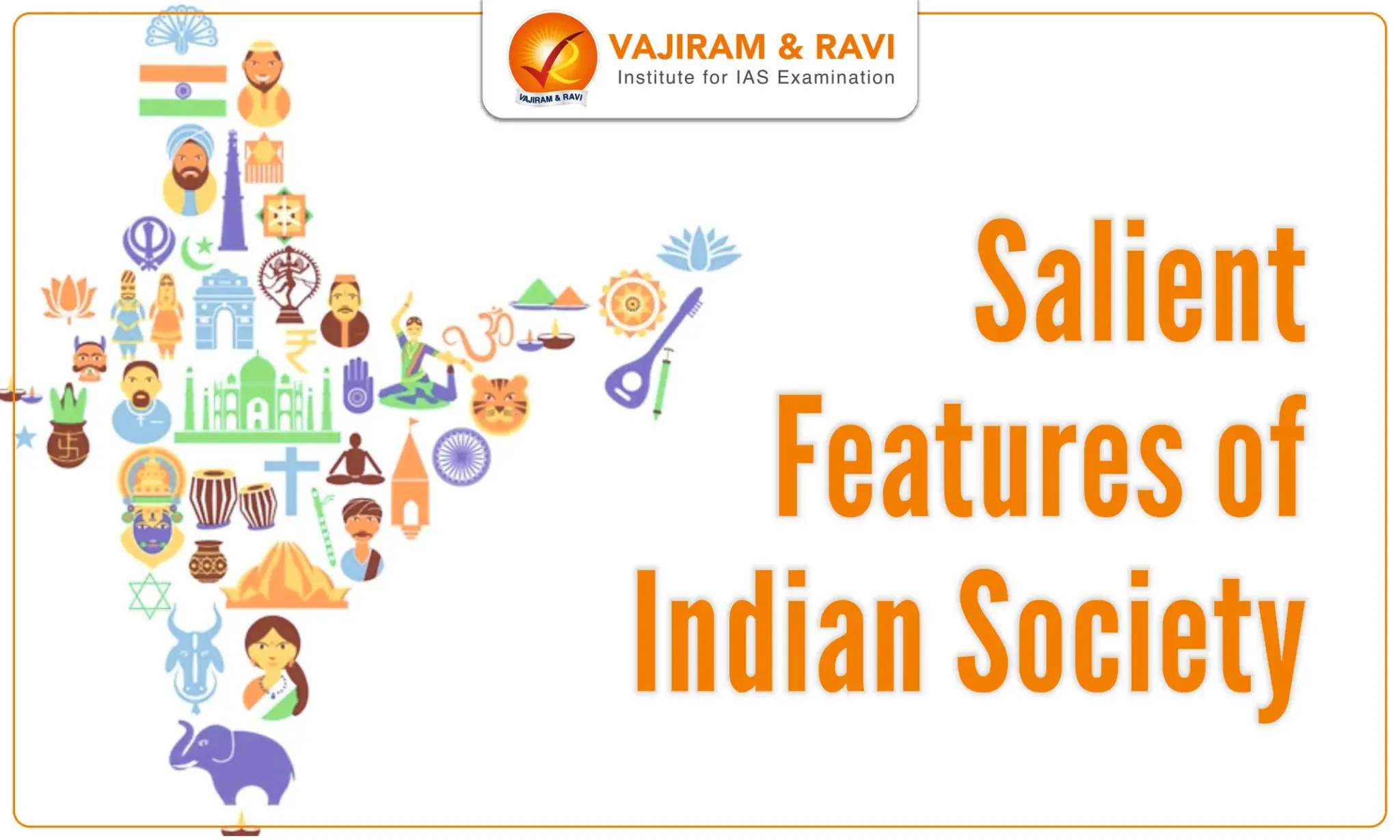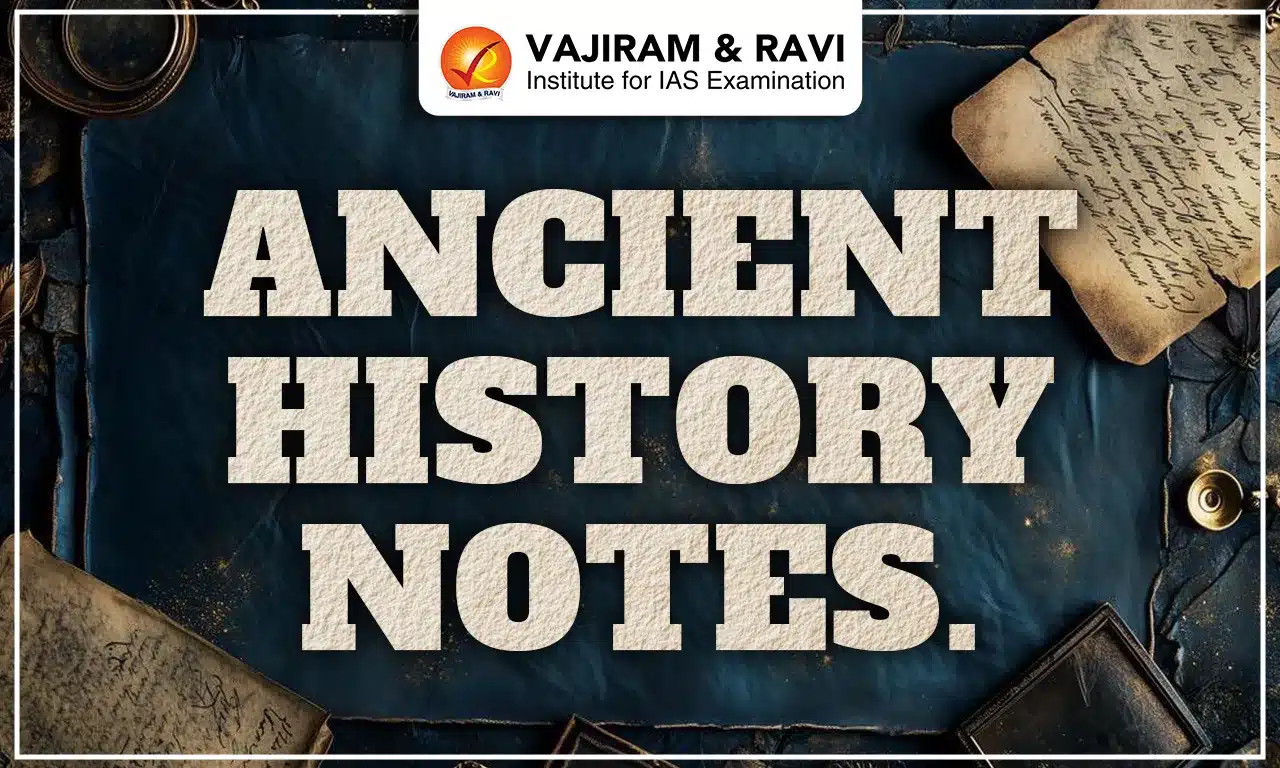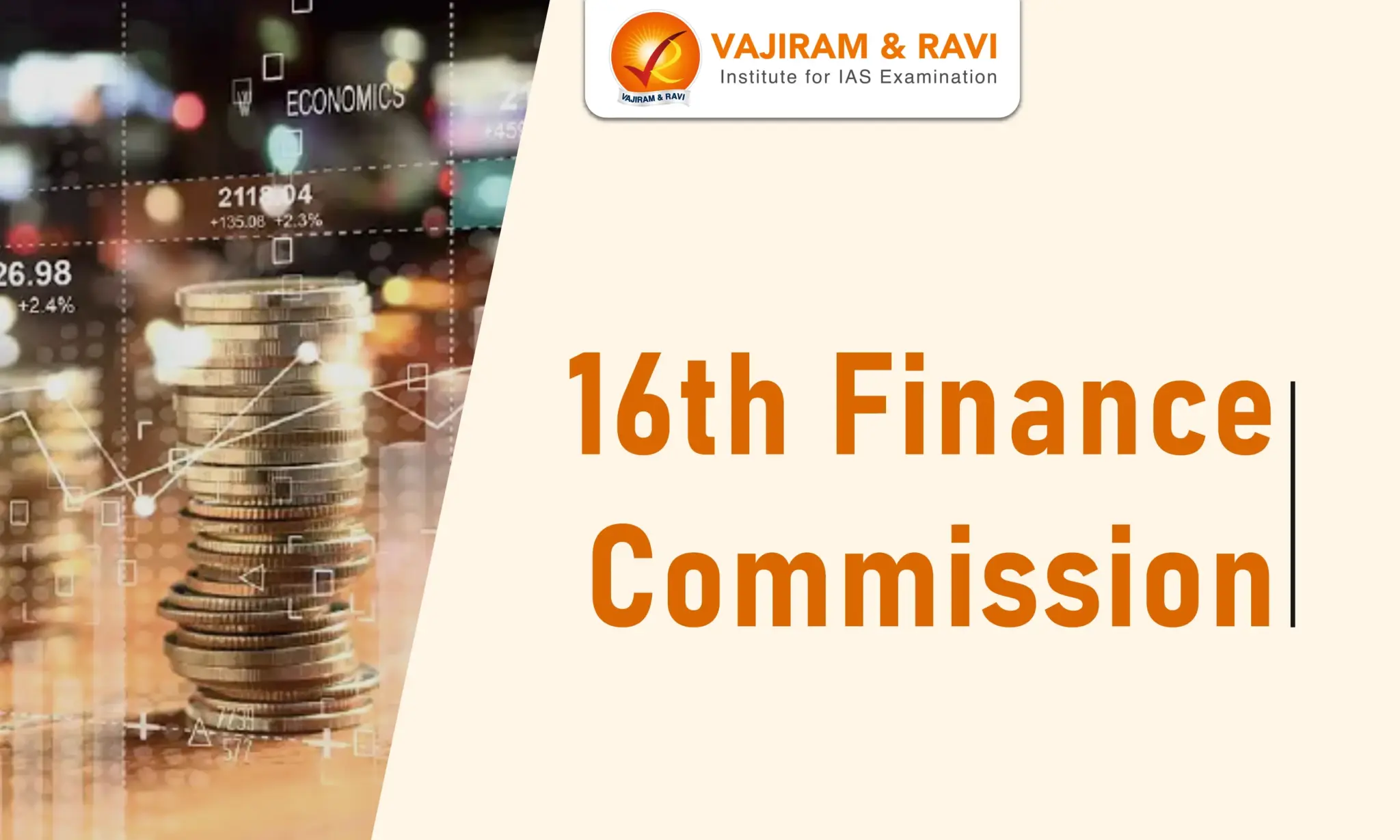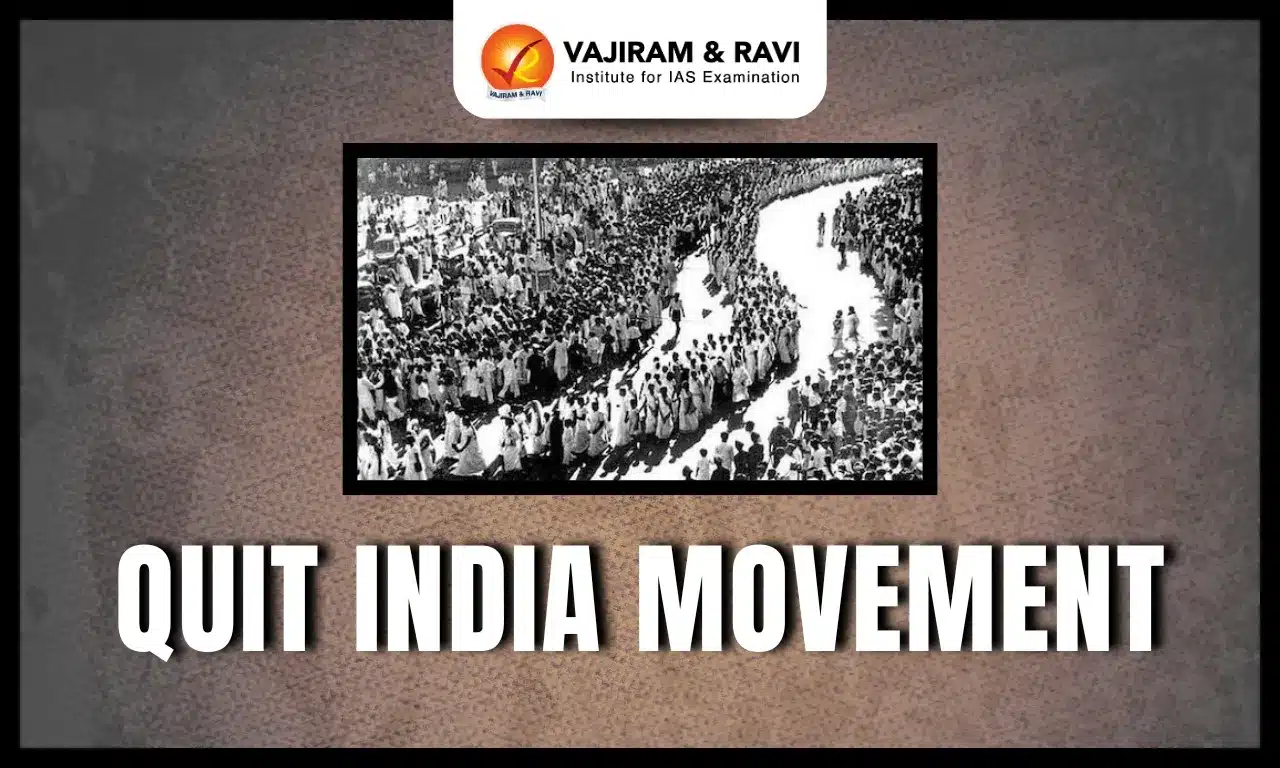What is a ‘Society’?
‘Society’ refers to a group of people who live in a particular country or region and share a common culture, religion, language, or set of values. Indian society is a diverse and complex mixture of different religions, cultures, ethnic groups, and social classes. There is a wide range of customs, traditions, and beliefs that shape the way people live and interact with each other.
What are the general traits of Indian society?
Indian society is characterized by a number of distinct features, some of which include:
- Diversity: India is a highly diverse country, both in terms of geography and culture. There are many different languages, religions, and ethnic groups, each with its own unique customs and traditions.
- Hierarchy: Historically, the Indian society has been characterized by a strict social hierarchy, with certain groups enjoying more privileges than others.
- Family-oriented: Family plays a central role in Indian society and is considered the primary source of emotional and financial support.
- Religion: Religion is deeply ingrained in Indian society and influences daily life, including food, clothing, and ritual. The major religions in India are Hinduism, Islam, Buddhism, Sikhism, Jainism, and Christianity.
- Respect for elders: Indian society places a high value on respect for elders, and it is considered rude to speak or act in ways that are seen as disrespectful towards them.
- Hospitality: Indians are known for their hospitality and generosity towards guests, and it is common for hosts to go to great lengths to make their guests feel comfortable and welcome.
- Cultural syncretism: Many different cultures and religions have coexisted and interacted on the Indian subcontinent throughout its history.
- Secularism: India has a secular government and constitution which guarantees equal rights and freedom of religion for all its citizens.
What are the salient features of Indian Society?
Multi-ethnicity
Ethnic groups refer to large groups of people classed according to the common racial, national, tribal, religious, linguistic, or cultural origin or background. India is a diverse and multi-ethnic society characterized by a range of different languages, religions, and cultural practices.
| Ethnic Group | States where the majority is found |
| Indo-Aryans | All states, majorly in North and West India |
| Dravidians | Southern states of India (Tamil Nadu, Kerala, Andhra Pradesh, and Karnataka) |
| Mongoloids | Northeastern states of India (Assam, Meghalaya, Tripura, and Arunachal Pradesh) |
| Tribals | All states, majorly in central and northeastern India |
| European & other | All states, majorly in urban cities. |
Multilingualism
In India, Multilingualism means the extent to which different mother tongues have penetrated the day-to-day life cycle of its citizens. The statistics related to Indian languages are given below:
- The latest 2011 count of Indian mother tongues/languages informs that Census had raw returns of 19569 mother tongues.
- After due processing of this raw data, it has arrived at a list of 121 languages. Among them, 22 languages are part of the Eighth Schedule of the Constitution. The rest of the 99 languages are non-scheduled languages.
- The scheduled languages are spoken by 96.71%, and the non-scheduled languages are spoken by 3.29% population of India.
| Language |
NUMBER OF SPEAKERS (in crores) |
| Hindi | 52.83 |
| Bengali | 9.72 |
| Marathi | 8.30 |
| Telugu | 8.11 |
| Tamil | 6.90 |
| Gujarati | 5.54 |
Multi-religious
In India, Religion is a marker of identity. It is not restricted to any particular sphere of life, public or private. Several major religions of the world are found in India. Some have originated here, like Hinduism, Buddhism, and Jainism, while others have been found in India and traveled from other parts of the world.
| Religion | Percentage |
| Hindu | 79.80% |
| Muslim | 14.23% |
| Christian | 2.30% |
| Sikh | 1.72% |
| Buddhist | 0.70% |
| Jain | 0.37% |
| Other religion | 0.66% |
| Not stated | 0.22% |
Caste system
Early written evidence about the caste system appears in the Vedas. For centuries, caste has dictated almost every aspect of Indian religious and social life, with each group occupying a specific place in this complex hierarchy. The system bestowed many privileges on the upper castes while sanctioning repression of the lower castes by privileged groups.
Family, Marriage, and Kinship
- In Indian society, the concept of family, marriage, and kinship is deeply rooted in tradition and culture. Families in India are typically patriarchal and hierarchical, with the eldest male member being the head of the household.
- Marriage is considered an essential rite of passage in Indian society. In many traditional Indian communities, marriages are arranged within the same caste or subcaste, and endogamy is highly valued.
- One good example is the preference for arranged marriages in India, which are still quite common, even in urban and educated families. Also, traditional customs like Saptapadi, Kanyadaan, and the dowry system, are still prevalent in some parts of India.
Tribalism
The tribal population represents the enormously diverse and heterogeneous features in the mosaic of Indian society. They have wide-ranging diversities regarding languages spoken, size of the population, mode of livelihood, ecological settings, physical features, the extent of acculturation, level of development, and social stratification.
Examples: Gonds, Bhils, Munda, etc.
Characteristics of tribes:
- Definite and common topography
- Sense of unity
- Endogamous groups
- Common dialect
- Protection awareness
- Distinct political organization.
Co-existence of traditionalism and modernity
- An important aspect of Indian society is the constant attempt to balance tradition and modernity. Indian society will always be in flux, always shifting, and going through a continuous process of transformation.
- The introduction of foreign cultures and customs during colonization is a significant factor that had the greatest impact on Indian society.
- The rationale and procedures of India's economic growth and change were inherently based on liberalization, privatization, and globalization (LPG).
Balance between individualism and collectivism
Individualism and collectivism are two different cultural values that shape the way people interact with each other and society as a whole. In Indian society, individualism and collectivism are present to some extent.
| Individualism | Collectivism |
| Emphasis on individual achievement and success | Emphasis on group harmony and cooperation |
| Respect for privacy and personal space | Strong sense of community and interdependence |
| Encouragement of independence and self-reliance | Emphasis on fulfilling one's responsibilities to the group |
| Strong emphasis on personal freedom and rights | Collective decision making in many aspects of life |
| Encouragement of self-expression | Collective responsibilities for maintaining the community |
However, with the rise of urbanization, education and communication infrastructure, the Indian society is seeing a shift towards individualism.
Balance between spiritualism and materialism:
In Indian society, there is often a balance between spiritualism and materialism.
| Spiritualism | Materialism |
| Bhakti - Devotion to a particular deity or divine being through prayer, worship and other forms of spiritual practice. | Material success seen as necessary aspect of life, strive for it through hard work and determination |
| Ayurveda - An ancient Indian system of medicine that emphasizes living in harmony with nature and balance between body, mind and spirit. | Ayurvedic products and treatments have become popular and there is a growing Ayurvedic industry that capitalizes on this popularity |
| Meditation, Yoga, and other spiritual practices | Many Indian business leaders, entrepreneurs, and professionals practice spiritualism and also seek guidance and blessings from spiritual gurus. |
Table: Balanced between Spiritualism and materialism in Indian society
Overall, Indian society tends to view spiritual growth and material success as complementary rather than mutually exclusive.
What factors threaten peace and harmony in Indian society?
- Poverty: It may affect the morale and self-esteem of people living in extreme hardship. It also results in building stress which ultimately affects the relationship between people.
- Economic inequality: India has a significant wealth inequality with a significant gap between the rich and the poor.
- Religious conflicts: Religious conflicts between communities lead to violence and crimes. People become fearful, and it affects the overall progress of the country.
- Juvenile delinquency: Juvenile delinquency refers to the crimes committed by minors. The crimes by minors affect not only the children but to the family and society. People become less secure, and there is always a sense of tension and distress.
- Gender inequality at the workplace: The main impact of gender inequality at work is that society shrinks and is deprived of the minds of the female worker. It also gives rise to the low status of women's issues in society.
Last updated on February, 2026
→ UPSC Notification 2026 is now out on the official website at upsconline.nic.in.
→ UPSC IFoS Notification 2026 is now out on the official website at upsconline.nic.in.
→ UPSC Calendar 2026 has been released.
→ Check out the latest UPSC Syllabus 2026 here.
→ Join Vajiram & Ravi’s Interview Guidance Programme for expert help to crack your final UPSC stage.
→ UPSC Mains Result 2025 is now out.
→ UPSC Prelims 2026 will be conducted on 24th May, 2026 & UPSC Mains 2026 will be conducted on 21st August 2026.
→ The UPSC Selection Process is of 3 stages-Prelims, Mains and Interview.
→ Prepare effectively with Vajiram & Ravi’s UPSC Prelims Test Series 2026 featuring full-length mock tests, detailed solutions, and performance analysis.
→ Enroll in Vajiram & Ravi’s UPSC Mains Test Series 2026 for structured answer writing practice, expert evaluation, and exam-oriented feedback.
→ Join Vajiram & Ravi’s Best UPSC Mentorship Program for personalized guidance, strategy planning, and one-to-one support from experienced mentors.
→ UPSC Result 2024 is released with latest UPSC Marksheet 2024. Check Now!
→ UPSC Toppers List 2024 is released now. Shakti Dubey is UPSC AIR 1 2024 Topper.
→ Also check Best UPSC Coaching in India
Salient Features of Indian Society FAQs
Q1. Is Indian society unique?+
Q2. What are some of the traditional and moral values of Indian society?+


















